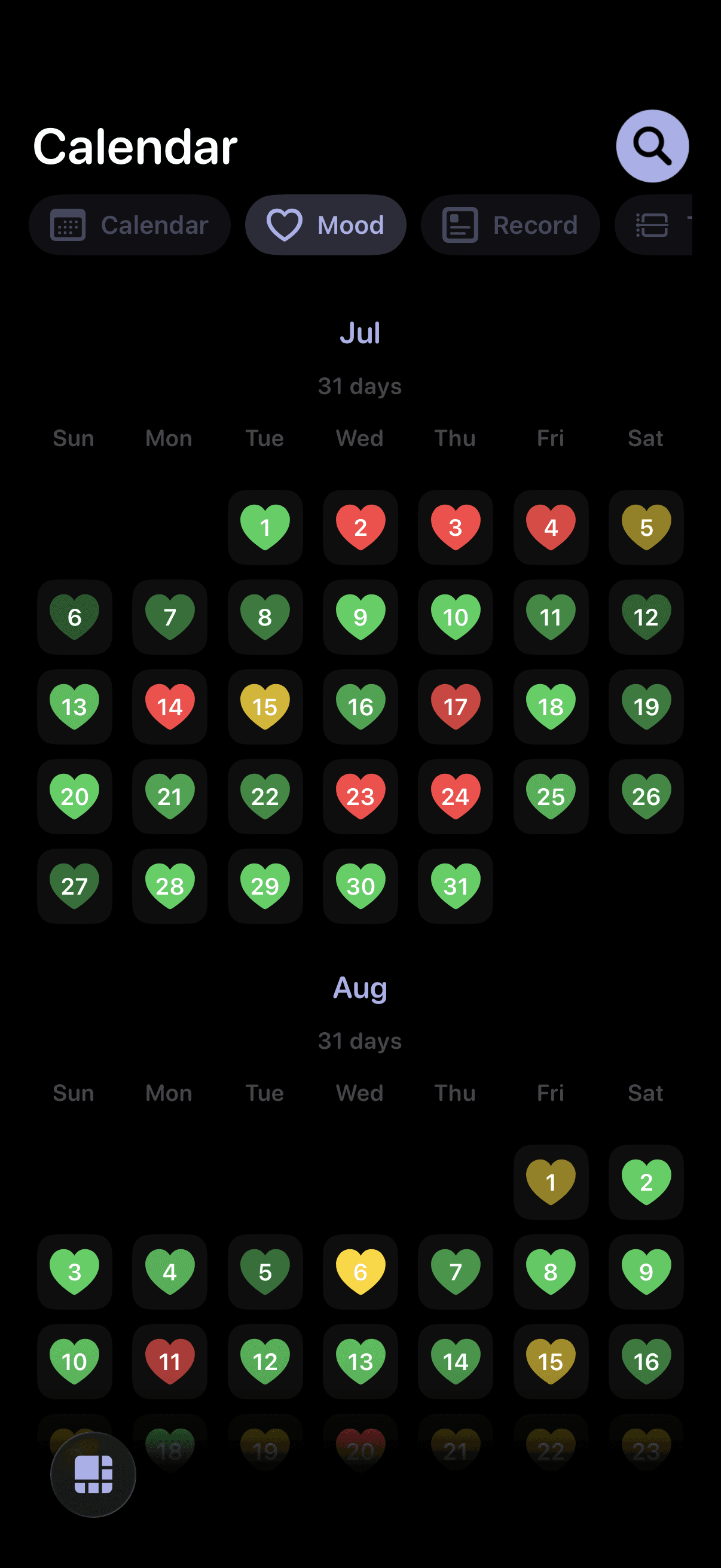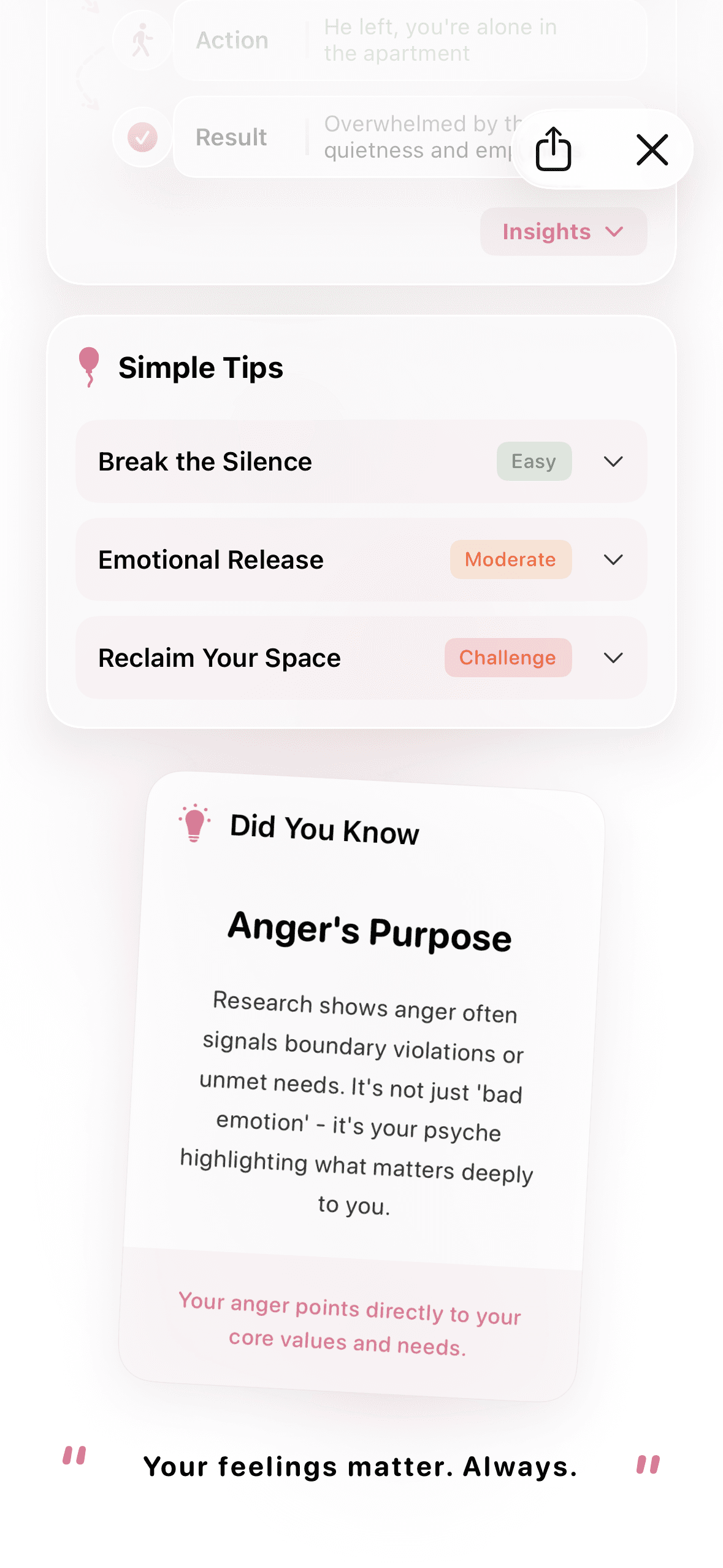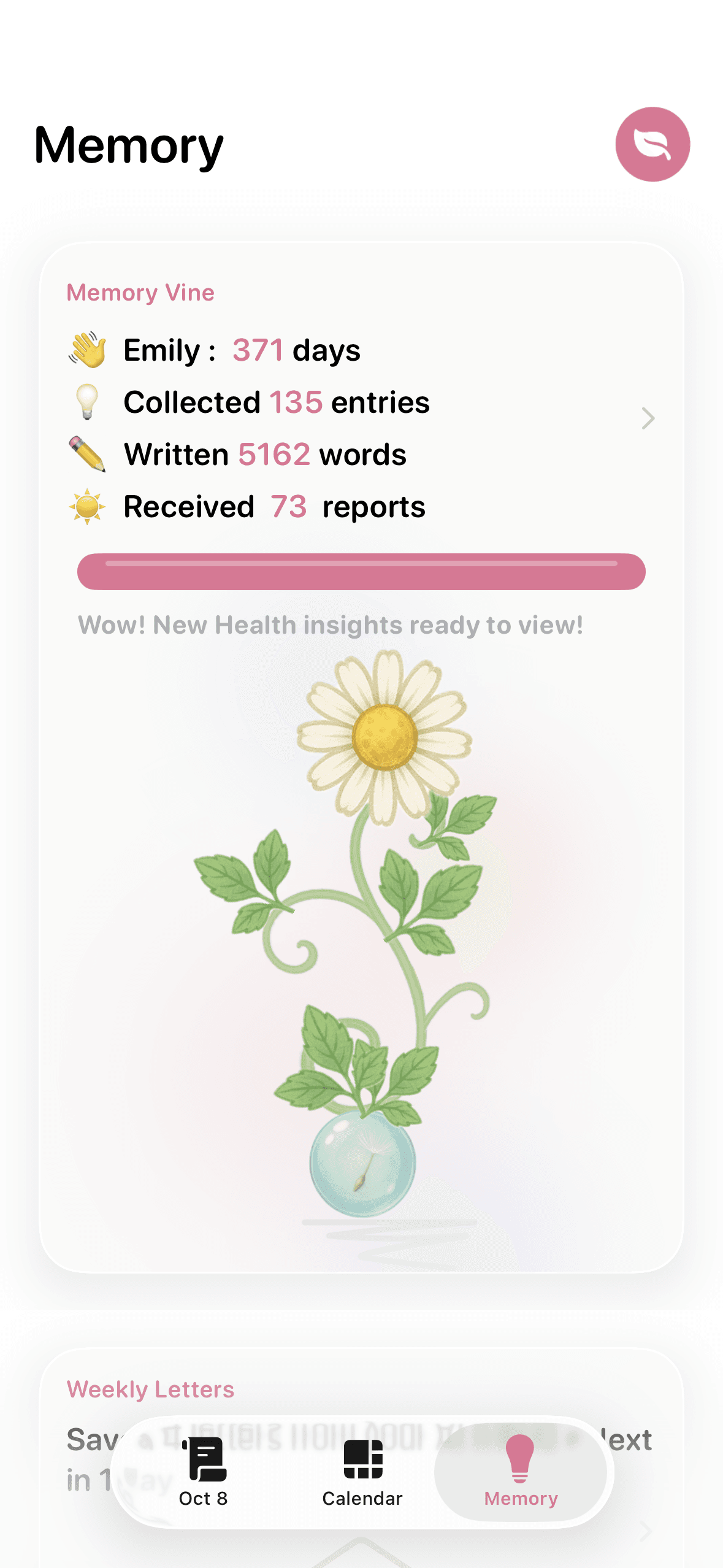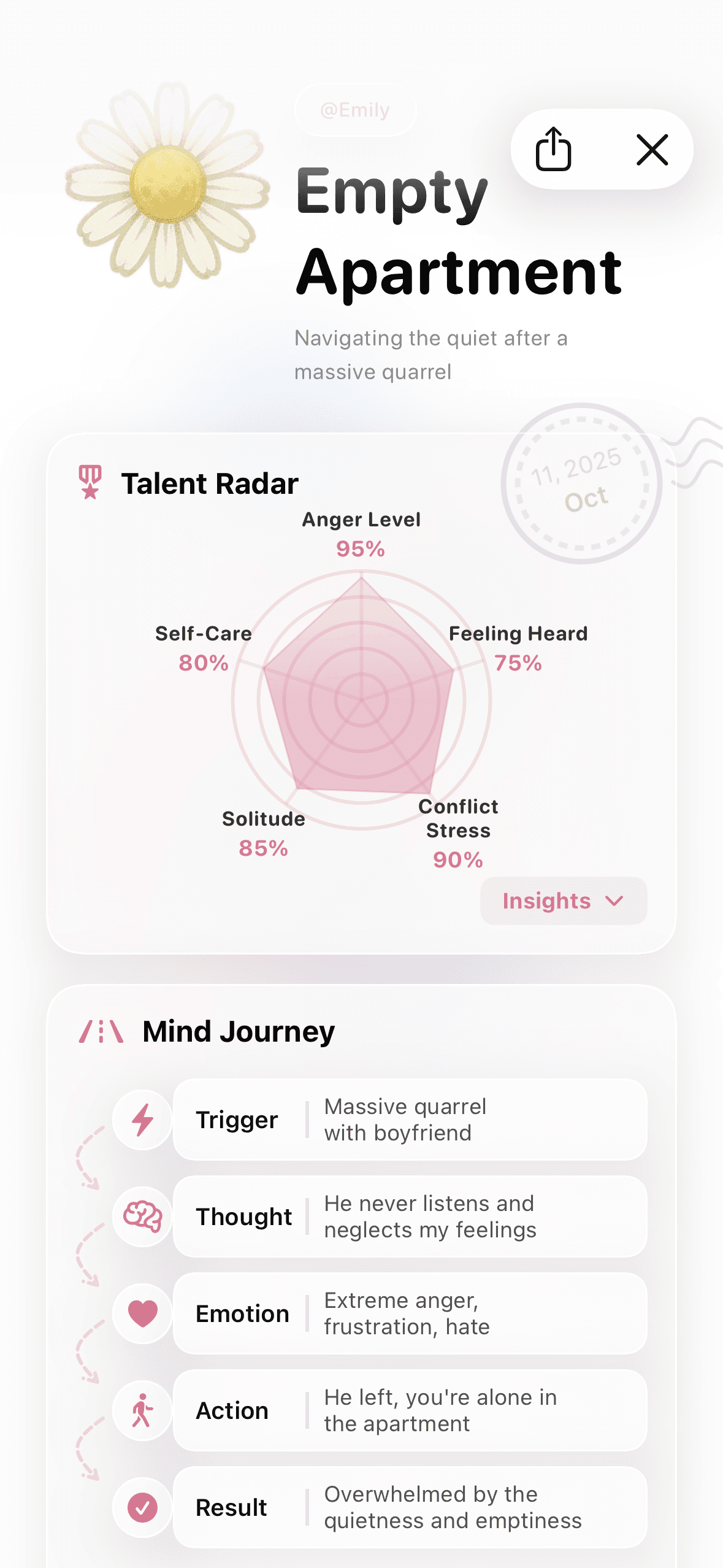The Student Mental Health Reality
87% of students feel overwhelmed. 45% struggle with depression. 70% report anxiety. But research shows students who journal have 23% less test anxiety and 19% better grades.
Why It Works
- Brain space: Journaling frees mental RAM for learning
- Stress reduction: 20 minutes writing = 4 hours lower cortisol
- Test boost: 10-minute pre-exam journaling raises scores one grade level
Quick Techniques for Busy Students
5-Minute Brain Dump
Before studying: Timer → Write everything on mind → Circle 3 priorities
Result: Clear head, focused study
Pre-Exam Anxiety Release
10 minutes before test: Write worries + physical feelings + one past success
Result: Frees working memory for problem-solving
Weekly Check-In
Sunday: Rate stress/social/health/sleep (1-10) + biggest challenge + next week's approach
Result: Catch problems early
Assignment Breakdown
New project → List steps → Time estimates → Calendar blocks
Result: Big tasks become manageable
Common Challenges
Test Anxiety: Write worst/best/likely scenarios → reduces catastrophizing
Procrastination: "What am I avoiding? What emotion? Smallest step?"
FOMO: List semester priorities → which activities align?
Impostor Syndrome: Keep "wins journal" of compliments and successes
Time-Saving Formats
Bullet Journal
• = todo X = done O = event ! = urgent
Monday:
• Chem lab
X History quiz
O Advisor 2pm
One-Line Daily
"Survived presentation, coffee reward" — maintains awareness in seconds
Voice Notes
Talk while walking. Apps like Lifelight transcribe automatically.
Exam Survival
- Study log: Subject/time/mastered/confused/energy
- Daily track: Sleep/stress/caffeine/exercise
- Post-exam: What worked? What to change?
Make It Stick
- Start with 3 minutes daily
- Link to existing habits (morning coffee, before bed)
- Use prompts: "Today I learned..." "Grateful for..." "Tomorrow's goal..."
Digital vs Paper
Digital: Always available, searchable, password-protected
Paper: Better memory retention, no screen time, creative freedom
Many use both: digital for quick entries, paper for deep reflection.
When to Get Help
Journaling isn't therapy. Seek campus counseling for:
- Persistent hopelessness
- Can't attend class
- Self-harm thoughts
- Substance coping
- Panic attacks
Start Now
Take 3 minutes. Write:
- Biggest stressor
- One good thing
- What you need
- Today's small step
That's it. You've started. Whether notebook or app, consistency beats perfection. Your mental health is worth these few minutes—and the clarity might be your academic edge.



